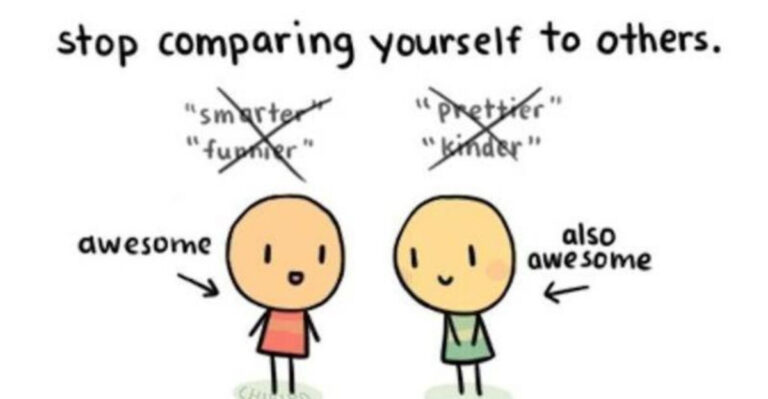35 frases que desenmascaran al instante a quienes no tienen ni idea
You know, sometimes people just blurt out things that make you wonder how they even manage to tie their shoelaces in the morning. It’s amazing how certain phrases can reveal a lot about someone’s competence—or lack thereof.
Lets take a look at fun and eye-opening list of 35 phrases that scream ‘I’m not quite sure what I’m doing here.’ We’ll chuckle, we’ll cringe, and we’ll learn to spot these little verbal red flags. Ready for some fun?
1. “That’s not my job”
Okay, let’s be real here. We’ve all heard this one, right? It’s the classic cop-out used by those who are determined to do the bare minimum. Imagine this: you’re in a team meeting, brainstorming the next big project, and someone pipes up with, “That’s not my job.”
Cue the collective eye roll. This phrase might as well be translated to, “I’m not interested in contributing beyond my paycheck.”
It signals a reluctance to collaborate and a lack of team spirit. Worse yet, it shows an unwillingness to learn or grow. In today’s dynamic workplaces, sticking rigidly to a job description is like wearing blinders—it might get you through a narrow path, but you’ll miss out on all the exciting detours.
So, the next time you catch yourself about to utter this phrase, pause. Instead, think about how you can contribute to the team’s success. You might find opportunities you never expected. After all, being adaptable and willing to step outside your comfort zone can only help you grow in your career.
2. “I forgot”
Oh, the classic “I forgot.” It’s the hallmark of someone who hasn’t quite mastered the art of organization. Sure, we all have moments where things slip our minds, but using esta frase as a crutch is a clear sign of carelessness. Picture someone at a meeting, shrugging their shoulders and meekly saying, “I forgot.”
What they really mean is, “I didn’t prioritize this,” and it shows. It undermines their reliability and can erode trust within a team. The truth is, in a world where reminders are just a click away, forgetting important tasks is less about memory and more about priorities.
¿Por qué no pruebas a establecer recordatorios o a utilizar herramientas de organización?
The next time you catch yourself on the verge of saying “I forgot,” take a moment to reflect on why that task wasn’t top of mind. Maybe it’s time to reassess your priorities or find a better organization method. Your future self will thank you for it.
3. “I don’t know how”
“I don’t know how.” It’s a phrase that seems innocent enough but can signal a bigger issue—unwillingness to learn. We all encounter situations where our skills fall short, but how we handle them speaks volumes.
When someone says, “I don’t know how,” it can come across as a refusal to try or to seek out resources to learn. In today’s world, where information is at our fingertips, a lack of knowledge is often a choice. Imagine being asked to handle a new software tool and responding with a simple, “I don’t know how.”
¿Por qué no mostrar iniciativa? Tómate un momento para investigar, preguntar a un colega o buscar un tutorial. Esta actitud no solo puede ayudarte a crecer, sino que también demuestra una mentalidad proactiva que tu equipo apreciará.
4. “That’s the way we’ve always done it”
Ah, the comfort of the familiar. “That’s the way we’ve always done it” is the anthem of those resistant to change. It’s the kind of phrase that can stop innovation in its tracks. Picture someone at a team meeting, clinging to outdated methods simply because “that’s how it’s always been done.”
Esta frase indica miedo a lo desconocido y reticencia a adoptar nuevas ideas. En un mundo que cambia rápidamente, aferrarse a los viejos hábitos puede dejarte atrás. En lugar de rechazar nuevas sugerencias, ¿por qué no explorarlas? Puede que descubras un proceso más eficaz o una solución innovadora.
When you’re tempted to pull out this old chestnut, take a step back and consider the potential benefits of change. Take it as an opportunity to grow and evolve, both personally and professionally. Who knows what exciting new paths might open up when you step out of your comfort zone?
5. “I don’t have time”
“I don’t have time.” We’ve all said it, but what does it really mean? Often, it’s less about the actual lack of time and more about prioritization. When someone frequently uses this phrase, it’s a sign they’re overwhelmed or struggling to manage their workload.
It can seem like you’re dismissing their needs or that you’re not invested in the team’s success. The truth is, we all have the same 24 hours, but it’s how we choose to spend them that counts. Try to revisit your priorities and see if there’s room to help others.
Maybe it’s time to reassess your schedule or delegate tasks. When you feel the words “I don’t have time” on your lips, pause and consider whether it’s truly a time issue or a matter of priorities. Finding a balance can make all the difference.
6. “It’s not my fault”
“It’s not my fault”—the classic blame game phrase. When things go wrong, it’s easy to point fingers instead of taking responsibility. Picture someone at work, defensive and quick to exonerate themselves with, “It’s not my fault.”
Esta frase puede ser una señal de alarma para alguien que no está dispuesto a aceptar responsabilidades. Sugiere una falta de madurez y una tendencia a eludir responsabilidades. Asumir los errores es una parte importante del crecimiento personal y de la cohesión del equipo.
En lugar de desviar la culpa, ¿por qué no reconocer el problema y trabajar para encontrar una solución?
By taking responsibility, you show integrity and a willingness to improve. Next time you find yourself tempted to say, “It’s not my fault,” take a deep breath and think about how you can contribute to resolving the situation. Your team will respect you more for it.
7. “I’ll try”
“I’ll try”—a phrase that sounds promising but often lacks commitment. When someone says, “I’ll try,” it can suggest uncertainty or a reluctance to fully commit. Imagine a colleague responding to a deadline with, “I’ll try to get it done.”
It can leave you wondering if they’re truly invested in the task. This phrase often indicates a lack of confidence or a fear of failure. Why not replace it with “I will” or “I’ll make it happen”? That simple shift in language can show determination and reliability.
When you catch yourself about to say, “I’ll try,” consider whether you truly intend to follow through. By committing fully, you demonstrate your dedication and build trust within your team. So go ahead, take the plunge and say “I will.” Your confidence can inspire others.
8. “I don’t know”
“I don’t know.” It’s a phrase we all use, but when it becomes a habit, it can signal disengagement. Picture someone in a meeting, repeatedly responding with, “I don’t know,” to questions or suggestions.
It can come across as a lack of interest or unwillingness to contribute. Instead of stopping the conversation, why not use it as an opportunity to learn? If you genuinely don’t know, follow up with, “but I’ll find out.”
This approach shows initiative and a willingness to grow. Next time you feel tempted to say, “I don’t know,” without further action, think about how you can use it as a stepping stone to gain knowledge. Your proactive attitude will likely be appreciated by those around you.
9. “I’m too busy”
“I’m too busy.” It’s a phrase that’s become all too common, but what does it really mean? Often, it’s a polite way of saying, “What you’re asking isn’t a priority for me right now.” Picture someone at work, swamped with tasks, echoing the words, “I’m too busy.”
Puede transmitir una sensación de agobio, pero también alude a una mala gestión del tiempo o a una falta de capacidad para establecer prioridades. En lugar de recurrir por defecto a esta frase, piensa en cómo puedes racionalizar tus tareas o tal vez delegar algunas responsabilidades.
When you’re tempted to say, “I’m too busy,” take a step back and assess your schedule. Are you truly too busy, or is it a matter of rearranging priorities? Finding clarity can help you manage your load more effectively.
10. “Nobody told me”
“Nobody told me.” We’ve all heard this phrase used to dodge accountability. It’s the verbal equivalent of a shrug. Picture someone at work, confronted about a missed deadline, replying with, “Nobody told me.”
Esta frase sugiere un enfoque pasivo de la comunicación y la responsabilidad. En lugar de esperar a que te informen, ¿por qué no tomas las riendas y buscas la información que necesitas? Ser proactivo puede evitar malentendidos y ayudarte a mantenerte al tanto de las tareas.
Next time you find yourself about to say, “Nobody told me,” consider how you can take initiative. Ask questions, seek clarity, and stay informed. By doing so, you’ll show that you’re engaged and committed, and you’ll likely earn the respect of your colleagues.
11. “That’s impossible”
“That’s impossible.” It’s a phrase that can halt progress before it even starts. When someone uses this phrase, it often reflects a closed mindset or a reluctance to tackle challenges. Picture someone in a brainstorming session, dismissing ideas with, “That’s impossible.”
It can come across as pessimistic and discouraging to others. Instead of shutting down possibilities, why not explore alternative solutions or adjust expectations? By shifting your mindset from “impossible” to “let’s find a way,” you open the door to creativity and innovation.
When you catch yourself about to say, “That’s impossible,” think about how you can reframe the challenge. With a positive outlook, you might just discover that the impossible becomes possible after all.
12. “That’s not fair”
“That’s not fair,” a phrase often heard when someone feels slighted or overlooked. While fairness is important, using this phrase can sometimes suggest a victim mentality. Picture someone at work, faced with a challenging situation, exclaiming, “That’s not fair.”
Puede indicar que te centras en las injusticias percibidas en lugar de en las soluciones. En lugar de centrarte en la injusticia, ¿por qué no te planteas cómo abordar la situación de forma constructiva? Si te centras en la acción y la resolución, demuestras resiliencia y adaptabilidad.
Next time you feel the urge to say, “That’s not fair,” take a step back and assess the situation from a different perspective. How can you move forward and make the best of it? Your proactive approach can set a positive example for others.
13. “It’s not my problem”
“It’s not my problem,” a phrase that can convey a lack of empathy and teamwork. When someone uses this phrase, it often reflects a disconnect from the collective goals of a team. Picture someone at work, dismissing an issue with, “It’s not my problem.”
Esta actitud puede crear un ambiente tóxico y erosionar la confianza entre compañeros. En lugar de distanciarte, ¿por qué no piensas en cómo puedes apoyar a tu equipo? Mostrando empatía y voluntad de ayudar, contribuyes a crear un lugar de trabajo positivo y colaborativo.
If you find yourself thinking, “It’s not my problem,” pause and reflect on how you might assist or guide others. Your involvement can strengthen team bonds and lead to more successful outcomes for everyone.
14. “We can’t afford that”
“We can’t afford that,” a phrase that often signals limited thinking or a lack of resourcefulness. While budget constraints are real, this phrase can sometimes be an easy way to shut down possibilities. Picture someone in a planning meeting, dismissively saying, “We can’t afford that.”
It can discourage creative solutions and innovation. Instead of focusing on what you can’t do, why not explore what you can do within your means? Perhaps there’s an alternative approach or a cost-effective solution that could work.
Next time you hear yourself saying, “We can’t afford that,” consider how you might reframe the challenge. By fostering a mindset of possibility, you might find new and unexpected ways to achieve your goals.
15. “I can’t”
“I can’t,” two simple words that can carry a lot of weight. When someone repeatedly says, “I can’t,” it often signals a lack of confidence or a fear of failure. Picture someone faced with a new challenge, defaulting to, “I can’t.”
This phrase can limit personal growth and potential. Instead of focusing on what you can’t do, why not consider what you can learn or how you can improve? Embracing a growth mindset can open doors to new opportunities.
If you feel the urge to say, “I can’t,” take a moment to reframe your thinking. Ask yourself what steps you can take to overcome the challenge. By shifting your perspective, you empower yourself to achieve more than you thought possible.
16. “I don’t care”
“I don’t care,” a phrase that can convey a lack of engagement or investment. When someone uses this phrase, it often signals disinterest or disengagement from a situation. Picture someone in a meeting, dismissively saying, “I don’t care.”
Puede parecer apático y desmoralizador para los demás. En lugar de desentenderse, ¿por qué no piensa en cómo puede contribuir de forma significativa? Mostrando interés y atención, fomentas interacciones positivas y fortaleces las relaciones.
Next time you find yourself thinking, “I don’t care,” pause and reflect on the impact of your attitude. How can you shift your focus to be more engaged and supportive? Your positive involvement can make a difference and inspire those around you.
17. “It’s too late”
“It’s too late,” a phrase often used to justify inaction or missed opportunities. When someone says this, it often reflects a sense of defeat or resignation. Picture someone realizing they missed a deadline, sighing, “It’s too late.”
This mindset can prevent you from finding creative solutions or making the best of a situation. Instead of accepting defeat, why not consider what actions you can still take? Perhaps there’s a way to mitigate the consequences or find an alternative path.
When you hear yourself saying, “It’s too late,” pause and think about what you can still achieve. By adopting a proactive mindset, you might find new opportunities and outcomes that you hadn’t considered before.
18. “That’s stupid”
“That’s stupid,” a phrase that can stifle creativity and discourage others. When someone uses this phrase, it often reflects a dismissive or judgmental attitude. Picture someone in a brainstorming session, brushing off an idea with, “That’s stupid.”
Puede crear un ambiente hostil y desalentar la comunicación abierta. En lugar de rechazar ideas, ¿por qué no explorarlas con curiosidad y apertura? Puede que descubras ideas valiosas o soluciones innovadoras.
Next time you feel tempted to say, “That’s stupid,” consider how you can reframe your response. By fostering a culture of respect and curiosity, you encourage collaboration and creative thinking.
19. “Why should I?”
“Why should I?”, a phrase that can indicate skepticism or a reluctance to engage. When someone uses this phrase, it often signals a lack of motivation or understanding of the bigger picture. Picture someone reacting to a new task with, “Why should I?”
Puede sugerir falta de compromiso o resistencia al cambio. En lugar de cuestionar el valor de la tarea, ¿por qué no intentar comprender su propósito y cómo contribuye a los objetivos generales? Al alinear sus esfuerzos con el panorama general, encontrará motivación y sentido a su trabajo.
When you find yourself thinking, “Why should I?,” take a moment to explore the reasons and benefits. By embracing a sense of purpose, you stay motivated and connected to your goals.
20. “I don’t want to”
“I don’t want to,” a phrase that can signal reluctance or resistance. When someone uses this phrase, it often reflects a lack of willingness to engage in a task or activity. Picture someone faced with a new responsibility, defiantly saying, “I don’t want to.”
This attitude can limit growth and collaboration. Instead of focusing on what you don’t want to do, why not consider the potential benefits or opportunities that the task might bring? By shifting your perspective, you open yourself up to new experiences and possibilities.
Next time you find yourself saying, “I don’t want to,” pause and consider what you might gain by embracing the challenge. By adopting an open and curious mindset, you can discover unexpected rewards and growth.
21. “I give up”
“I give up,” a phrase that signals surrender or defeat. When someone uses this phrase, it often reflects a sense of hopelessness or frustration. Picture someone struggling with a difficult project, throwing their hands up and saying, “I give up.”
This mindset can limit potential and prevent you from finding solutions. Instead of giving up, why not take a step back and reassess the situation? Perhaps there’s a new approach or resource that can help you overcome the obstacle.
If you feel like saying, “I give up,” pause and consider the options available to you. By maintaining a resilient and determined mindset, you empower yourself to overcome challenges and achieve your goals.
22. “It’s too hard”
“It’s too hard,” a phrase often used to express frustration or overwhelm. When someone says this, it often reflects a lack of confidence or fear of failure. Picture a student faced with a challenging subject, lamenting, “It’s too hard.”
Esta mentalidad puede obstaculizar el progreso y el aprendizaje. En lugar de centrarte en la dificultad, ¿por qué no piensas en los pasos que puedes dar para descomponer la tarea y hacerla más manejable? Si afrontas los retos con una actitud positiva y decidida, ganarás en confianza y habilidad.
Next time you hear yourself saying, “It’s too hard,” pause and think about how you can tackle the task step by step. By embracing a growth mindset, you empower yourself to overcome obstacles and achieve success.
23. “I don’t need help”
“I don’t need help,” a phrase that can signal pride or reluctance to admit vulnerability. When someone uses this phrase, it often reflects a fear of appearing weak or incompetent. Picture someone struggling with a project, insisting, “I don’t need help.”
Esta actitud puede impedir la colaboración y obstaculizar el progreso. En lugar de rechazar la ayuda, ¿por qué no considerar los beneficios del trabajo en equipo y las perspectivas diversas? Si aceptas ayuda, podrás mejorar tus habilidades y conseguir mejores resultados.
When you find yourself saying, “I don’t need help,” pause and consider how collaboration could benefit you. By embracing support and learning from others, you open yourself up to growth and success.
24. “I’m not interested”
“I’m not interested,” a phrase that can convey a lack of enthusiasm or engagement. When someone uses this phrase, it often reflects a closed mindset or unwillingness to explore new ideas. Picture someone at a conference, dismissively saying, “I’m not interested.”
Esta actitud puede limitar las oportunidades y las conexiones. En lugar de cerrarte a las posibilidades, ¿por qué no exploras los posibles beneficios o conocimientos que pueden ofrecerte las nuevas experiencias? Manteniendo la curiosidad y la mente abierta, puedes descubrir intereses y oportunidades inesperados.
If you feel like saying, “I’m not interested,” pause and consider what you might gain by staying engaged. By embracing new experiences, you open yourself up to growth and enrichment.
25. “It’s too risky”
“It’s too risky,” a phrase often used to justify inaction or avoidance. When someone uses this phrase, it often reflects a fear of uncertainty or loss. Picture an investor, hesitating over a new opportunity, saying, “It’s too risky.”
Esta mentalidad puede impedirle asumir riesgos calculados y aprovechar las oportunidades. En lugar de centrarse en los riesgos, ¿por qué no evaluar las posibles recompensas y las formas de mitigar los retos? Si adoptas un enfoque equilibrado, podrás tomar decisiones con conocimiento de causa y alcanzar el éxito.
Next time you hear yourself saying, “It’s too risky,” pause and consider how you can manage the risks while pursuing potential benefits. By adopting a strategic mindset, you open yourself up to growth and opportunity.
26. “That’s not my responsibility”
“That’s not my responsibility,” a phrase that often signals a lack of teamwork or commitment. When someone uses this phrase, it often reflects a reluctance to engage with the needs of the team. Picture an employee, shrugging off a request with, “That’s not my responsibility.”
This attitude can create a disjointed and unproductive work environment. Instead of distancing yourself, why not consider how you can contribute to the team’s success? By showing initiative and collaboration, you strengthen relationships and foster a positive workplace culture.
If you find yourself thinking, “That’s not my responsibility,” pause and reflect on how you can support your team. Your willingness to help can lead to more successful outcomes and a more cohesive team dynamic.
27. “I can’t help you”
“I can’t help you,” a phrase that can convey a lack of empathy or problem-solving. When someone uses this phrase, it often reflects a reluctance to engage or find solutions. Picture a customer service agent, dismissing a customer’s concerns with, “I can’t help you.”
Esta actitud puede dañar las relaciones y erosionar la confianza. En lugar de rechazar las peticiones, ¿por qué no explorar posibles soluciones o alternativas? Mostrando empatía y voluntad de ayudar, se genera confianza y se fomentan las interacciones positivas.
Before you say, “I can’t help you,” pause and think about how you can assist or guide others. Your proactive and supportive approach can make a difference and enhance relationships.
28. “I don’t see the point”
“I don’t see the point,” a phrase that can signal a lack of understanding or vision. When someone uses this phrase, it often reflects skepticism or disengagement. Picture a team member, questioning a project with, “I don’t see the point.”
Esta actitud puede limitar la colaboración y la innovación. En lugar de descartar ideas, ¿por qué no tratar de entender su propósito y su impacto potencial? Al alinearse con el panorama general, encontrará motivación y valor en su trabajo.
Next time you find yourself saying, “I don’t see the point,” pause and explore the reasons and benefits behind the initiative. By embracing curiosity and understanding, you contribute to a more positive and productive environment.
29. “It’s not worth it”
“It’s not worth it,” a phrase often used to justify giving up or avoiding effort. When someone says this, it often reflects a focus on short-term difficulties rather than long-term benefits. Picture an entrepreneur, contemplating a challenge and saying, “It’s not worth it.”
Esta mentalidad puede impedirle aprovechar oportunidades valiosas. En lugar de centrarse en los obstáculos, ¿por qué no considerar las recompensas y el crecimiento potenciales? Si adoptas una perspectiva a largo plazo, podrás tomar decisiones informadas que se ajusten a tus objetivos.
If you hear yourself saying, “It’s not worth it,” pause and assess the potential benefits of persevering. By maintaining a positive and determined mindset, you open yourself up to success and achievement.
30. “I don’t want to change”
“I don’t want to change,” a phrase that often signals resistance to new ideas or growth. When someone uses this phrase, it often reflects a fear of the unknown or a comfort with the status quo. Picture an older employee, clinging to old habits with, “I don’t want to change.”
Esta actitud puede limitar el desarrollo personal y profesional. En lugar de resistirse al cambio, ¿por qué no considerar las oportunidades que puede brindar? Al aceptar nuevas ideas y experiencias, te abres al crecimiento y el enriquecimiento.
Before thinking, “I don’t want to change,” pause and consider the potential benefits of embracing new opportunities. By staying open and adaptable, you empower yourself to thrive in an ever-changing world.
31. “That’s above my pay grade”
“That’s above my pay grade,” a phrase often used to shirk responsibility or involvement. When someone uses this phrase, it often reflects a lack of initiative or engagement. Picture a junior employee, avoiding responsibility with, “That’s above my pay grade.”
Esta actitud puede limitar las oportunidades de crecimiento y aprendizaje. En lugar de distanciarte, ¿por qué no te planteas cómo puedes contribuir y aprender de la experiencia? Mostrando iniciativa y voluntad de compromiso, mejorarás tus competencias y generarás confianza en tu equipo.
Next time you find yourself saying, “That’s above my pay grade,” pause and think about how you can get involved. By embracing challenges, you open yourself up to growth and new opportunities.
32. “I don’t care about that”
“I don’t care about that,” a phrase that can convey disinterest or disengagement. When someone uses this phrase, it often reflects a lack of investment or understanding of the importance. Picture a team leader, dismissing feedback with, “I don’t care about that.”
Esta actitud puede dañar las relaciones y obstaculizar la colaboración. En lugar de desestimar las preocupaciones, ¿por qué no considerar su posible valor o impacto? Mostrando interés y compromiso, se fomenta un entorno positivo y de colaboración.
If you feel tempted to say, “I don’t care about that,” pause and reflect on the importance of the issue. By staying open and engaged, you contribute to a more successful and cohesive team dynamic.
33. “I’m not doing that”
“I’m not doing that,” a phrase that can signal refusal or defiance. When someone uses this phrase, it often reflects a resistance to authority or responsibility. Picture a teenager, refusing a chore with, “I’m not doing that.”
Esta actitud puede limitar el crecimiento y la cooperación. En lugar de centrarse en el rechazo, ¿por qué no considerar los posibles beneficios u oportunidades que la tarea puede aportar? Adoptando una mentalidad positiva y cooperativa, te abres a nuevas experiencias y al crecimiento.
Before you say, “I’m not doing that,” pause and think about what you might gain from the experience. By embracing challenges, you empower yourself to achieve more and build stronger relationships.
34. “That’s just the way I am”

Ever heard someone use this phrase as a shield against change? “That’s just the way I am” is often a not-so-subtle way of avoiding self-improvement. It suggests a fixed mindset—one that resists growth, feedback, and accountability.
Picture someone being told they need to improve their communication skills, and instead of taking it as constructive advice, they shrug and say, “That’s just the way I am.” Translation: “I don’t want to put in the effort to change.”
Growth comes from adapting and evolving, and clinging to this phrase is like putting a ‘Do Not Disturb’ sign on personal development. Instead of shutting down possibilities, try asking yourself, “How can I improve?” That small shift in mindset can open doors to new opportunities and stronger relationships.
35. “If it ain’t broke, don’t fix it”

Ah, the ultimate excuse for resisting progress. While there’s some wisdom in not meddling unnecessarily, “If it ain’t broke, don’t fix it” can be a major roadblock to innovation. Just because something funciona doesn’t mean it can’t be better.
Imagine a company sticking with outdated technology because, technically, “it still works.” Meanwhile, competitors are upgrading, improving efficiency, and leaving them in the dust. Clinging to the status quo for too long can mean falling behind.
Instead of defaulting to this phrase, ask, “Is there a way to make this even better?” Innovation thrives on curiosity, not complacency. After all, the best breakthroughs often come from fixing things antes de they’re completely broken.








































